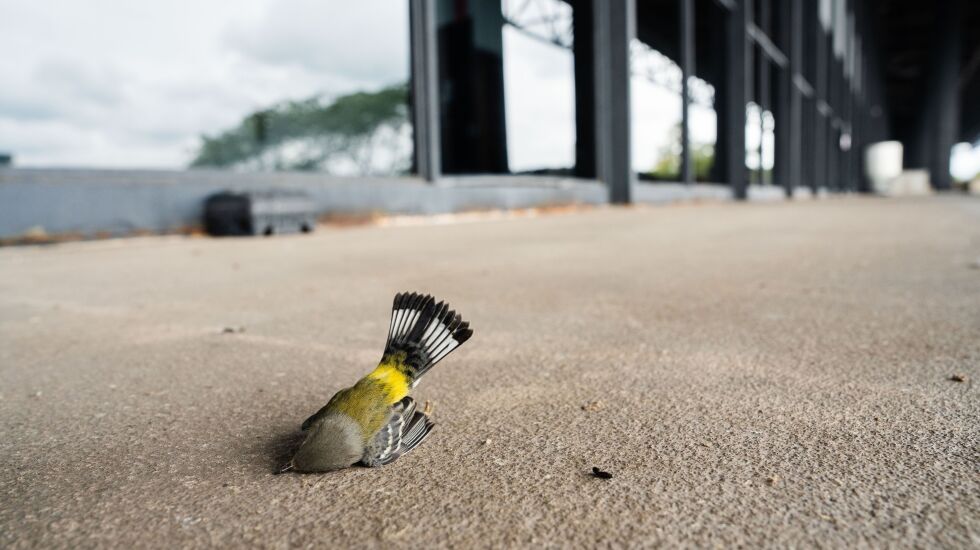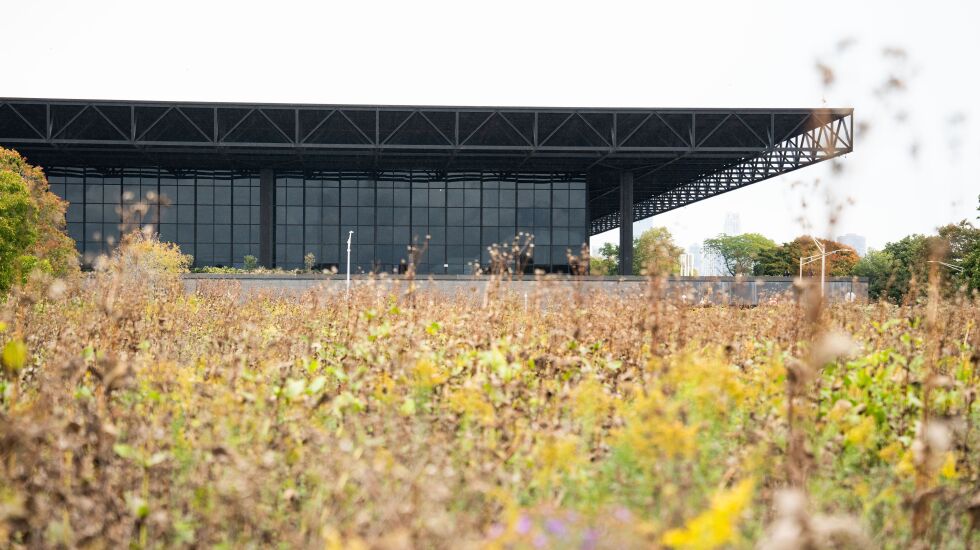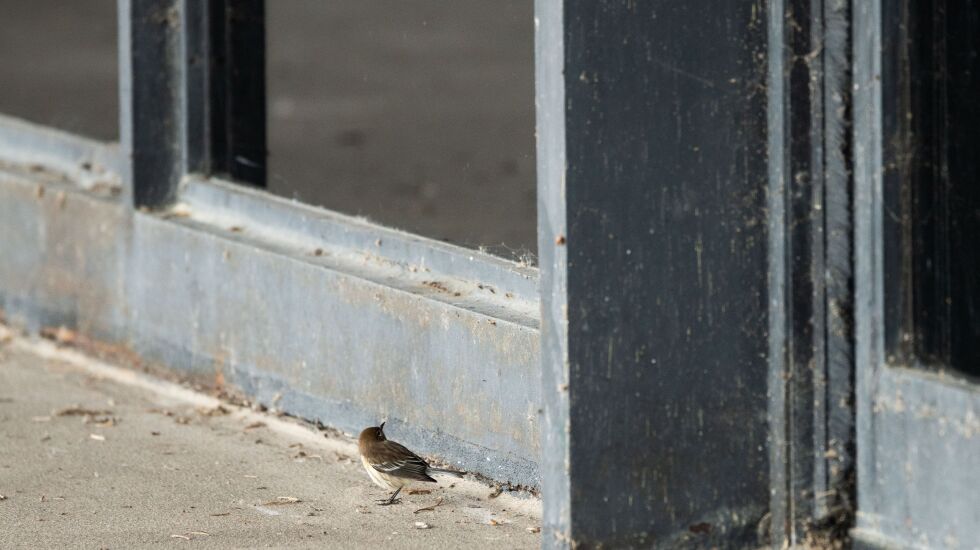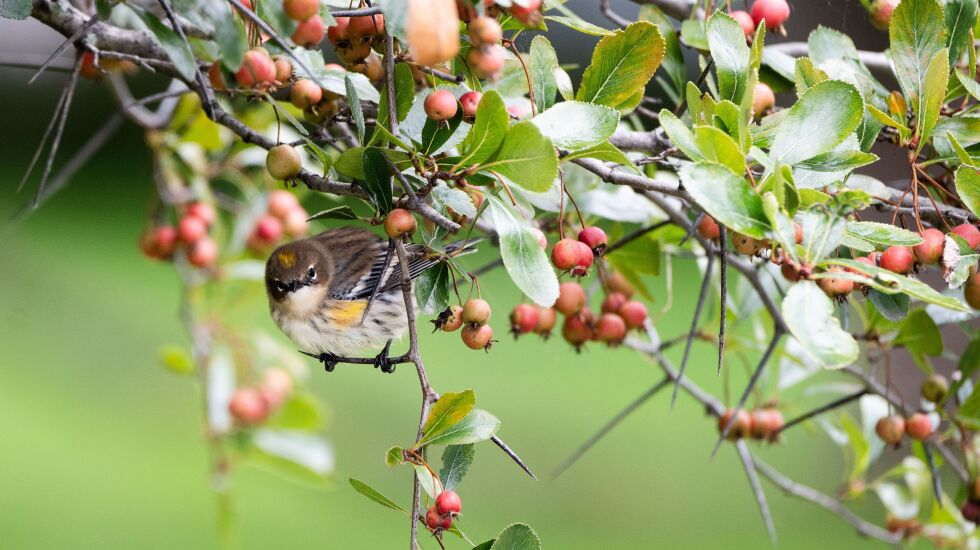
In one night earlier this week, nearly 1,000 birds were killed after colliding into the McCormick Place Lakeside Center during the height of the fall migration.
“To have so many birds at one building is just devastating. That is a very tragic amount of birds to find dead at all, especially from one building,” said Annette Young, director of Chicago Bird Collision Monitors.
Her organization tracks and collects birds that hit structures around the city. The Field Museum documents and preserves the birds that are killed.
While the number of birds that died at the Lakeside Center from Wednesday night through early Thursday morning is alarming, it’s just part of a larger danger facing migrating birds.
This is one of the busiest times of year for palm warblers, yellow-rumped warblers, white-throated sparrows and other birds passing through Chicago on their way south for the winter.
“We’re in the middle of fall migration, which reaches its height from September to October,” Young said. “The amount of artificial lighting and glass in the city, combined with millions of birds coming each year, it’s dangerous for them.”
Young estimates hundreds of thousands of birds are killed from hitting buildings during each migration period in Chicago.
“That is just an incredible loss of life that is unnecessary and preventable,” Young said.
Birds prefer to travel at night with the wind coming from behind them. Wednesday night was the perfect storm.
Warm southern winds earlier in the week kept birds from flying south. But chillier northern winds blowing through Wednesday and into Thursday created more favorable conditions for birds to travel, Young said.
“We weren’t finding many birds before Wednesday night, so we knew they were building up,” she said.
The McCormick Place Lakeside Center is one of the easternmost structures along the lakefront and made mostly of glass. And even though it’s not a tall structure, its position along the lake, where a lot of birds travel, is particularly dangerous, Young said.

Birds rely on the moon and stars to travel, and bright lights from glass structures at night throw off their navigation. Pulled toward the light, they often can’t perceive the glass and think they can fly straight through.
“These birds spend their lives in the deep woods in Canada and tropical forests in South America. They’re not accustomed to cities. Young ones, in particular, have never seen a city,” Young said.
There are effective methods to keep migratory birds safe. A special type of window, made from what is called “fritted” glass, is nonreflective, so birds don’t fly toward it. And it doesn’t affect the view from inside, said Matt Igleski, executive director of the Chicago Audubon Society.
Turning off lights or closing blinds at night, both in tall buildings and homes, also deters birds from flying toward windows at night, Igleski said.
“For all of North America, about a billion birds die each year from collisions. And that’s second to cats, which kill about 2 billion,” Igeleski said.
“So about 3 billion birds are killed each year by two things that we probably have the most control over,” he added. “And it’s really frustrating that we haven’t done enough.”
The Chicago City Council passed an ordinance in 2020 requiring all new buildings to be designed with bird-safe features. But it’s yet to be implemented as the city completes a larger sustainability plan for new developments, Young said.

“We should want to make buildings that don’t kill something. This is not us wanting to have a say in the design, and we’re not making it a political thing. This is life or death,” Young said. “It’s been four years since these requirements have not been in place, and many buildings went up in the city in that time that are very damaging.”
Migrating is already a dangerous time for birds, Young said. It’s natural that not all survive.
“It’s a spectacle of nature that these little birds are traveling hundreds of thousands of miles,” Young said. “But what’s happening here is not survival of the fittest. Often the strongest birds, the best of their species, are being taken out from collisions. It’s a very unnatural thing we are doing. And we can’t bring them back.”
Anyone finding a dead or injured bird can report them to Chicago Bird Collision Monitors by calling its hotline: 773-988-1867.








